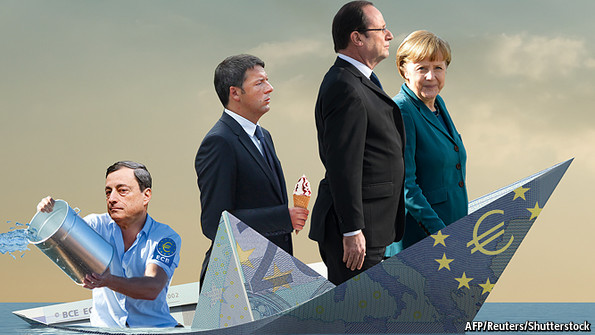Dragon Society, CIA and Chinese government and other sources. However,
the sources say. The mathematics of finance and the real economy are
so, time is on the side of the 188 nation BRICS alliance. Just like it
but obviously they will not be announced in advance. We can hint,
The cabal, for its part, is continuing to produce one fake
fear-mongering media event after the other in an effort to manipulate
the opinions of a steadily shrinking audience of brain-washed believers.
To this end the cabal has recently staged the fake beheading of a
journalist in the Middle East, orchestrated race riots in the US,
attempted to reignite a cold war with Russia, tried to start a global
Ebola pandemic, threatened to blow up Chicago, LA and New York etc.
The people who wrote the Mossad motto “by way of deception, thou shalt
make war,” obviously never read the parable about the boy who cried
wolf. The lies and fake incidents are no longer believed by most
informed people, especially in the world’s military and intelligence
organizations. Instead of creating the desired effect of herding the
sheeple in predetermined directions, the recent staged events have
caused profound disgust throughout the world’s governments, armed forces
and other agencies with the ability to actually fight if necessary.
That is why senior members of the Nazionist cabal are frantically
looking for some place to escape what they see as an inevitable purge.
One place they are trying to flee to is Southern Argentina. The recent
hedge fund lawsuits and cabal attempts at financial blackmail against
Argentina’s government are meant to pressure it into allowing one
million or so US based cabalists to flee there and set up a new
government on the coast of Patagonia, according to a senior cabal
member.
Argentina, however, has joined Japan, Israel, North
Korea, China, New Zealand and other nations in wisely refusing to allow
such a large group of Satan worshipping criminals to move to their
country.
The cabalists, especially those based in the US and Israel, will have to
face justice from the people they have so callously exploited.
Some top cabalists, for their part, seem to arrogantly believe they will never be removed from power.
At a meeting between cabal and White Dragon Society representatives in
New York this summer a senior cabalist negotiator was unwilling then to
either compromise or surrender. Instead he seemed to operate under the
delusion the cabal would be able to continue its fraudulent financial
system indefinitely.
This may be tied into reports by Neil Keenan that Nazionist drug dealer
Richard Armitage, Bill Clinton and a member of the Japanese imperial
family are in Indonesia attempting to steal gold belonging to the people
of the planet. He also said there were similar ongoing attempts by
cabal agents to steal historical gold in South Korea. White Dragon
Society members in Japan and China were not able to confirm the
Indonesia reports but can confirm the Indonesian government of Joko
Widodo, due to assume power on October 20th, is not cabal controlled.
This means the cabal has a strong incentive to do everything in its
power to get its hands on Indonesian gold before the power transfer
takes place.
The sources did confirm ongoing efforts to steal South Korean historical
gold. This is linked to the visit by Pope Francis to South Korea that
ended last week. The visit came as the Vatican linked P2 freemason lodge
continues its efforts to gain access to Asian gold to back a new
financial system controlled by it.
In what may be related to this, Pope Francis, during his South Korean
visit, hinted he might resign or die within three years. Shortly after
he said this, three relatives of his died in a suspicious car crash in
Argentina.
http://www.theguardian.com/world/2014/aug/19/pope-francis-argentina
Following this, Kevin Annett of the International Tribunal into Crimes
of Church and State, who calls Francis a criminal, announced he had
received death threats from the Italian Ngdrangheta mob. Self-described
Satanist Leo Zagami also once told this writer he had been threatened by
the Ngdrangheta.
Speaking about Annett, this writer visited first nations communities and
did research in Canada this summer to determine the truth of his many
claims of genocide against them by the Canadian government and Churches.
A truth and reconciliation committee, staffed by first nations peoples,
concluded that about 4000 children died in the schools during the
century they were run, mostly from fires, not 50,000 from murder as
Annett claims.
http://kevinannett.com/2014/08/03/the-hard-truth-about-the-crime-called-canada/
http://o.canada.com/news/national/at-least-4000-aboriginal-children-died-in-residential-schools-commission-finds
The Canadian government has apologized and paid compensation to the
victims of these schools. However, in cases where have been committed,
the perpetrators should face justice.
In any case, the threats and deaths point to extreme tension at high
levels of the ongoing battle over control of the world’s financial
system, and thus world power.
Japan remains a key battleground in the battle to end cabal control of
global finance. That is why Armitage, his fellow Nazionist gangsters and
their Japanese slave politicians are struggling desperately to keep
Japan a Nazionist tributary country. However, they are already looting
Japan in an unsustainable manner and the shrinking tribute paid by the
Japanese slave government will not be enough to keep them afloat much
longer.
MI5 sources in England say the Nazionist cabalists, having bankrupted
Greece in order to buy up its Greece’s physical assets at bargain
prices, are now counting on replenishing their war chests by doing the
same with the assets of other European countries, starting with the
Ukraine and France.
To prevent this from happening, the Germans, French and British are
already making preparations to abandon the US and Israel and throw in
their lot with the BRICS alliance, according to CIA and MI6 sources in
Europe.
To try to keep Europe in their grip, the Nazionist cabal has adopted a
strategy of using mercenary armies to seize European energy choke points
in the Middle East and the Ukraine. Pentagon sources now confirm that
the so-called Islamic State or ISIS is run by a Mossad agent by the name
of Simon Elliot who is running the Middle Eastern side of this
strategy. Elliot is also following the ongoing cabal plot to create a
one world religion by fanning tensions between Muslims and Christians.
What the cabalists do not seem to understand is that the world is sick
and tired of a gang of international criminals invading countries,
stealing resources, lying to the world and, through incompetent
management of the planet, presiding over the greatest mass extinction
event on earth since the dinosaurs were wiped out 65 million years ago.
Even if they manage to steal some more gold and oil, they will be
shunned as pariahs.
Think about it for a minute, the so-called leaders of the West we have
now are not visionaries trying to turn dreams of an ideal future into
reality. Instead they are murderous gangsters who stage fake events in
order to manipulate public opinion, start wars and steal resources. The
politicians we see on public display in the West are merely their
puppets.
Source:




























